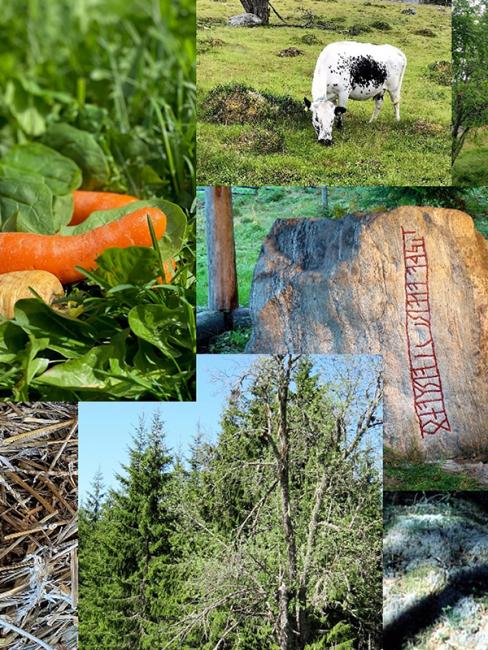Biocultural Heritage and Alternative Food Production (Biokuma)
How does small-scale food production relate to the preservation of our biocultural heritage? Is the biocultural heritage an obstacle or an opportunity? What affects the conditions to run small-scale, local food production? These are some of the questions that researchers at Karlstad University, the Norwegian Institute for Cultural Heritage Research and Inland Norway University of Applied Sciences study in the Biokuma project.

The project is based in Hedmark, Norway, and in Värmland, Sweden, and will run for two years, starting in October 2020. The goal is to facilitate the preservation and development of the biocultural heritage in the region by studying small-scale, organic food production on selected farms on both sides of the border.
The project looks at how small-scale food production works in practice, with regard to biocultural heritage management. The idea is also to create recommendations for procedures and processes that will support and protect the biocultural heritage. As the conditions for biocultural heritage and alternative food production differ between Norway and Sweden, the project will also investigate if and how positive experiences on both sides of the border can be used.
As part of the project, the researchers will interview farmers on selected farms in Värmland and Hedmark, as well as consumers who buy food from small local producers, farm shops and other sales channels. The project also includes mapping study programmes at upper-secondary and university level, apprenticeship programmes, volunteer work and other ways of transferring knowledge and experiences within the field.
The project is run by the Centre for Research on Sustainable Societal Transformation (CRS) at Karlstad University and the Norwegian Institute for Cultural Heritage Research, together with Inland Norway University of Applied Sciences.
Other partners are the County Administrative Board of Värmland, the Swedish Forest Agency (Värmland-Örebro), Förbundet Svensk Fäbodkultur och utmarksbruk (FSF), the association Värmlands Säterkultur, Hedmarken Landbrukskontor, Innlandet fylkeskommune ved Jønsberg videregående skole and the association Norsk seterkultur.
Project management: Eva Svensson (KAU), Hilde Rigmor Amundsen (NIKU)
Participating researchers: Margareta Dahlström (KAU), Terje Motrøen (HINN)
Communication: Christina Knowles (KAU), Jorid Martinsen (NIKU)
Coordinator: Sigrid Josefsson, Hannah Bowring (KAU)
Funding: Interreg Sweden-Norway, the European Regional Development Fund, priority Natural and Cultural Heritage
Project period: October 2020 - September 2022

